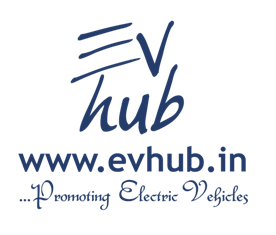While I am not a fan of General Motors and their horrible past scandals with the electric car or their current federal financial bailout, I am surprised by the falsehoods that writers use to describe the Chevy Volt. The Aug. 10 column by Jonah Goldberg, a conservative commentator, has the facts just plain wrong.
Goldberg does not seem to understand some basic energy principles. Even with the source of electricity coming from the most polluting methods of production, in this case, coal, electric vehicles will produce significantly less CO2 and other toxic pollutants into the atmosphere than produced by gasoline engines.
This is because the efficiencies of electric motors are far greater than their gasoline counterparts. Gas engines produce lots of heat (thus are about 25 percent efficient), while electric motors produce little heat and thus can be up to 95 percent efficient.
Read this news @ http://www.evhub.in/news/205#205
This is because the efficiencies of electric motors are far greater than their gasoline counterparts. Gas engines produce lots of heat (thus are about 25 percent efficient), while electric motors produce little heat and thus can be up to 95 percent efficient.
Read this news @ http://www.evhub.in/news/205#205
